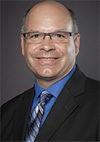I love Progressive Dairyman magazine; there is so much high-quality information in there that I barely get it read before the next edition arrives! “Progressive” sounds like a positive word, but what does it mean? I found a few definitions, but the one I like most is “favoring or promoting progress.” Progressive Dairyman lives up to its name. Its pages are often filled with information and ideas to bring about positive change; I like that.
One of the mottos we have at Wagner Farms is to “always be looking for a faster, easier, smarter, better way.” Any business that stays on the forefront will be planting seeds of improvement that will contribute to future success. The same is also true for families, marriages and even individuals. If we are always looking for ways to improve, then we have set ourselves up for perpetual progress.
Sounds like being progressive should be an easy decision, but there are costs associated with being progressive. Being an innovator requires us to be willing to try new things. Often they are unproven, far out things, which others will say are not possible. And sometimes those crazy ideas will result in failure, a loss of self-worth, time, energy and finances. And other times each failure will lead to a new lesson that continually improves the idea until it reaches its best form. We would not have electric light bulbs, airplanes and thousands of other inventions today if not for progressive people like Thomas Edison, the Wright brothers and so many others.
It’s a tough year financially to be trying new things, but it is also during tough times when many new ideas are born. You may have heard of a popular proverb, “Necessity is the mother of invention,” and in times like these, we need to be on the lookout for “faster, easier, smarter and better” ways to do things. Farmers are resilient, creative and determined, which make us great innovators.
Like Progressive Dairyman, we at Wagner Farms always have some new ideas in the hopper, and this year is no exception. There have been some exciting developments in the calf area in the last 12 months, mostly related to paired housing for calves. We are far enough along to know there are some real benefits, and like everything else, there have been some disadvantages that required some additional trial and error to make this system fly.
In the last eight months, we have also built a new freestall barn and made dramatic changes to existing barns. We widened out main street and crossovers to significantly improve cow flow and lower stress on cows while moving among parlor, feed and stalls. We are currently experimenting with no overcrowding; every cow has a stall to lie in and a place at the feed lane to eat. We used to be 35 percent overcrowded, and it is still too early to know all the advantages and disadvantages of this strategy. But we already know it has changed the way cows eat and lie down. Because they all can eat upon returning from the parlor, they eat as a group and then lie down as a group. There are advantages and disadvantages to everything, and this still needs more time before we evaluate.
Because of no overcrowding at the bunk or the stalls, excellent cow comfort and small enough groups to minimize time away from feed and bed, as of Feb. 19 we had also decided to experiment with 4X-milking on the entire herd. The experiment is still young, and it is still too early to make any long-term decisions.
One of the biggest changes has been a decision to move toward mechanical ventilation in all three of our freestall barns. We built our new barn with this new system and converted our other two existing natural-vent barns to the same design. I guess you might call our barns hybrid barns because they are a combination of many other ideas. We can naturally ventilate when the weather is right, which in our area is likely eight months out of the year. We can also mechanically ventilate and have more control over the climate in those barns when the weather doesn’t cooperate.
When in mechanical ventilation mode, it is not a tunnel-vent or a cross-vent design. The fans in the new barn and another existing barn were not installed until last December, and the rest of the fans in the remaining barn are currently being installed. So we have only run the fans a couple of times as of this writing, and it is also a very young experiment. But our expectation is better air quality than straight natural, cross or tunnel ventilation systems. All with less horsepower and operational costs than other power ventilation systems.
If you wish to see some of what happens at our dairy farm check out our Facebook page, or come visit us June 24 for Shawano County’s Brunch on the Farm. ![]()
Hank Wagner is a dairy farmer in Oconto Falls, Wisconsin.




